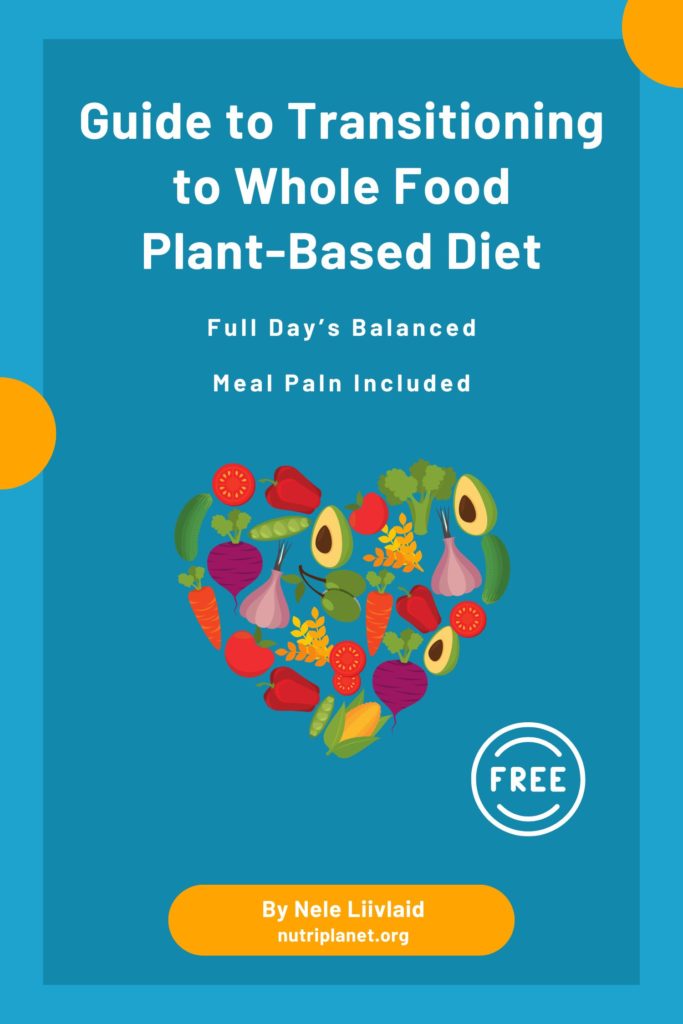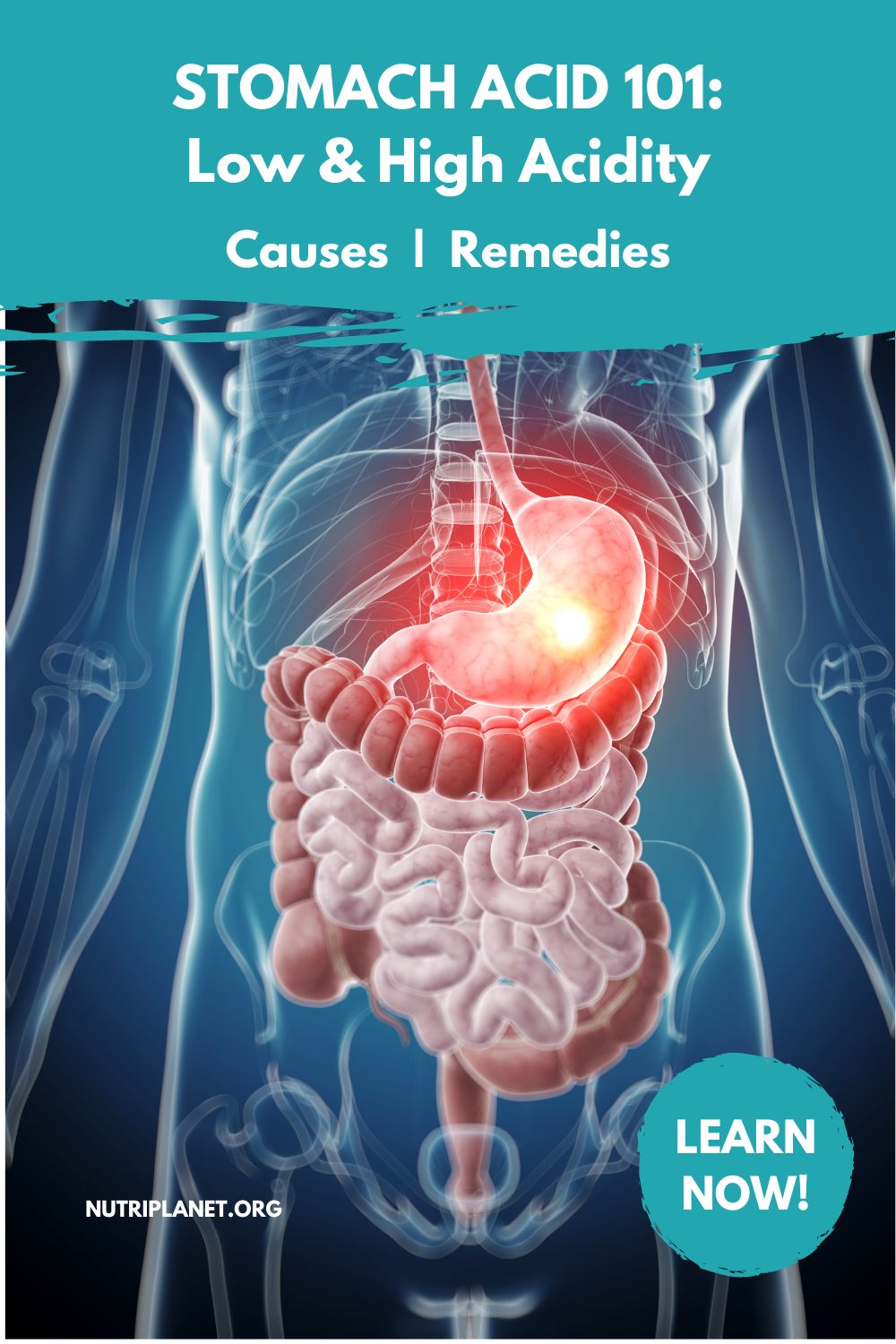Uncover the secret world of stomach acid. We delve into the crucial roles stomach acid plays in our health, discuss the symptoms and causes of both low and high acidity, and explore effective strategies to maintain balance. Dive in for a better understanding of your body and the intricate workings of your digestive system.
Despite its often-negative reputation, stomach acid plays a crucial role in our overall health. From breaking down our food to defending our bodies against harmful bacteria, its importance cannot be overstated. However, like all things in life, balance is key. Both low and high stomach acid levels can lead to health issues, each with their own unique set of causes and symptoms.
Listen this article (and more) as a podcast!
Table of contents
- What Is Stomach Acid aka Hydrochloric Acid?
- What Happens in the Stomach?
- The Role of Stomach Acid
- The Causes of Low Stomach Acid
- The Symptoms of Low Stomach Acid
- How to Increase Stomach Acid
- The Causes of Excess Stomach Acid aka Hyperchlorhydria
- The Symptoms of Too Much Stomach Acid
- How to Reduce Stomach Acid
- How to Relieve Symptoms of Excess Stomach Acid?
- Low or High Stomach Acid – How to Know Which One You Have
- The Worst Things You Can Do to Your Stomach Acid
- The Best Things You Can Do to Your Stomach Acid
What Is Stomach Acid aka Hydrochloric Acid?
First and foremost, it is the key digestive acid produced by parietal cells of your stomach. Basically, cells in your stomach lining.
The normal volume of the stomach fluid is 20 to 100 mL and the pH is acidic (1.5 to 3.5).
Let’s mention right away that the digestive tract and how it’s functioning may be the single most important component that determines whether you’re healthy or have a disease.
Can you guess how much food is digested throughout an average lifetime? It’s more than 10,400 kilograms (that’s 23,000 pounds)! Imagine that! (Peiken, 2009). No wonder you need to have digestive tract in order!
Briefly, let me say that there are 4 major functions of digestive system: ingestion of food via mouth, then digestion, absorption, and finally, elimination.
Maintaining those functions at an optimal level is crucial, and when they are faulty, you most probably experience all kinds of dysfunctions that contribute to so many other problems. Besides the optimal functioning of the main characters of the digestive system; the stomach, small intestine, pancreas, liver, gallbladder, and large intestine; there are other important factors that have a huge impact such as emotions, stress level, and balance within the endocrine aka hormonal and nervous systems.
What Happens in the Stomach?
Stomach is the ultimate food blender so to speak. It mixes and breaks the food (or the bolus – this is how the chewed mass that you swallow is called, given that you really do give it a good chew). So, in the stomach it is broken down into smaller bits.
Now, chewing is so important because the digestion of carbohydrates begins in the mouth. Your salivary glands secrete the enzyme called amylase that does its magic even before you swallow. And it doesn’t end here, chewing also stimulates more secretion of saliva and stomach juices, thus creating a better ground for digestion.
So, if you gobble your food down too fast, the digestion of carbohydrates remains incomplete, and you may experience digestive discomfort and the nutrients won’t assimilate as well.
So, how does the stomach do what it does? It has the help of gastric juices that contain enzymes and voila, hydrochloric acid.
The Role of Stomach Acid
Digesting Proteins
First, together with enzyme pepsin, it helps digest proteins. For example, many people have trouble digesting nuts because of their high fat content, which is even worse after roasting them in oil.
So, proteins are first broken down in the stomach into peptides or amino acid chains. This happens with the help of hydrochloric acid, pepsin, and proteases. By the way, it’s only been the recent years, when it became clear that lack of stomach acid could compromise the entire protein digestion process. If there’s low hydrochloric acid the protein structure fails to open and therefore the enzymes can’t access the amino acids in the protein chains.
First Line of Defence
Moving on, the next crucial task for HCl acid is to combat harmful bacteria, yeasts, viruses, and parasites. In other words, it boosts your immune system helping fight all those pathogens that enter your body through mouth.
Emptying into Small Intestine
Let’s follow the food – remember, when the chewed food entered the stomach, it became bolus. Now, in the stomach and by the processes happening there, it becomes a mass called the chime and it moves to the first part of small intestine, the duodenum. In order to make that happen correctly, we, again, need adequate levels of stomach acid.
Stimulating Pancreas
Now, stomach acid goes beyond stomach and its functions. Meaning, adequate levels of hydrochloric acid signals pancreas to secrete its secretions that contain the majority of enzymes that actively break down foods.
Absorption of Nutrients
And furthermore, stomach acid is also required for the absorption of certain micronutrients, specifically minerals such as calcium, magnesium, zinc, copper, iron, selenium, and boron.
Controlling Esophageal Sphincter
Finally, there is this super useful valve between esophagus and stomach called lower esophageal sphincter aka LES. Now, hydrochloric acid signals this valve to close tightly so that it couldn’t travel back up. When there’s not enough stomach acid, the little acid there is enters the esophagus and causes damage.
So, a healthy amount of stomach acid keeps the lower esophageal sphincter muscle tight, preventing the acid from refluxing. This is often misinterpreted – people tend to think that too much stomach acid causes heartburn (which can be the case as well but very often it’s the opposite).
The Causes of Low Stomach Acid
I think it goes without saying that if your system is healthy, it does not need additional support, for example in the form of supplements or medications.
However, in the United States and presumably in other developed areas of the world, the lack of stomach acid (a condition called hypochlorhydria) is a common problem.
Age
First, research shows that the natural level of hydrochloric acid (HCl) and digestive enzymes decrease as we age, so the simple fact that you’re growing older might be the factor, particularly after the age of 60. Later we’ll talk about what you can do about it. But for now, let’s keep exploring the causes.
Besides aging, there are other factors of course. There are numerous ways one can abuse his or her gastrointestinal tract and whole body through things like food excesses, chemical use, and stress, which in turn affects the production of hydrochloric acid.
Stress
What does stress do to your digestive system? Well, chronic stress hampers stomach’s ability to produce enough HCl acid and other digestive juices. When you’re stressed, you go into fight-or-flight mode i.e., you activate your sympathetic nervous system instead of rest-and-digest aka parasympathetic nervous system. Occasionally, people have increased HCl secretion with acute stress, but usually over time, chronic stress causes HCl production to decrease.
So, initially stress increases stomach hydrochloric acid production. However, when you have increased acid levels, the pancreas is stimulated to release alkaline enzymes to help balance the acidity. And that’s the reason why chronic stress can lead to hypochlorhydria (low stomach acid) and reduced function of the pancreas.
This may result in poor digestion and assimilation of nutrients and thus vitamin and mineral deficiencies. Furthermore, you can develop food reactions because of the improper breakdown of the bulk foodstuffs. Subsequently you’d absorb larger molecules, which may be immunogenic and cause reactions.
Stress also puts a burden on the immune system and can lead to more infections, which in turn can mean allergies, both environmental and food allergies. For example, parasitic intestinal infections may act as direct allergens and also increase other allergic responses. In addition, emotional and mental stress, anxiety, and fatigue, and even hormonal changes all increase susceptibility to allergies.
Eating Habits
As you might guess, acid production decreases when we eat more frequently than required by the body or when we over-consume food.
In fact, when I observe people, I see that eating too quickly seems to be a common theme. Very often the food is being gulped down without giving it a good chew.
Now, if you don’t chew enough, it causes the body to generate even more stress hormones and you’re in the loop. This in turn obstructs the production of stomach acid causing indigestion. And we already talked about the salivary enzyme amylase that starts to digest carbohydrates in the mouth – so most people skip that first phase of digestion.
Poor Diet
A poor diet itself is an important factor. Especially a diet rich in refined sugars and refined grains, trans fats and chemicals, and low in fibre. This type of diet causes inflammation and therefore, again results in elevated stress hormone levels.
What’s more, food sensitivities by themselves cause stress in the body. So, if you have any sensitivities (the common ones being gluten, dairy, corn, soy, and peanuts) it’s wise to keep those out of your menu for a while until your system stabilises. If you keep consuming those foods it can lead to further depletion of stomach acid.

Download my FREE Guide to Plant-Based Diet
Including a full day’s meal plan!
Learn the basics, prepare your kitchen and pantry, compile a balanced meal plan, handle challenges with family and friends, learn the tricks of dining out as well as travelling.
Learn the secrets of weight loss, better health and happiness!
Drinking at a Wrong Time
What does that mean? Although we all need to keep ourselves hydrated to remain healthy, drinking large amounts of water along with meals does not seem to work well for most people. The reason is that it dilutes the digestive juices and makes food breakdown more difficult. So, drink water between meals. Some water or herbal tea, about 100ml is fine though.
Overuse of Medications
And last but not least, there’s the issue of overuse of medications such as over-the-counter antacids, as well as antibiotics and common pain killers.
Antacids neutralize stomach acid and make digestion worse. So, when a person with already low stomach acid is treated with antacids because he or she may experience heartburn which is caused by malfunctioning lower esophageal sphincter and not by too much acidity, low stomach acid is aggravated even further.
When antacids are taken for an occasional heartburn, it may offer short-term relief, but a long-term use often develops dependence. Even if low stomach acid was not the problem initially, when you take strong acid blockers, you block the natural production of HCl. What about antibiotics and common pain killers? They disturb our microbiome and cause inflammation and indigestion among other issues. When taken often, medications such as aspirin, acetylsalicylic acid, or ibuprofen can wear down our stomach lining and reduce the formation of HCl.
The Symptoms of Low Stomach Acid
There are a variety of symptoms that come with low stomach acid:
- Gas and bloating
- Belching
- Discomfort after rich meals
- Heartburn
- Diarrhoea or constipation
- Undigested food in stool
- Acne
- Rectal itching
- Chronic candidiasis
- Dry skin
- Cracked fingernails
- Fatigue
- Mineral deficiencies
How to Increase Stomach Acid
Fortunately, most people can correct low stomach acid by eating a balanced diet of wholesome foods and by reducing the daily stress level.
Here are some things you can do to stimulate the body’s own HCl:
- Niacin (vitamin B3)
- Magnesium chloride
- Pyridoxal-5-phosphate (the active form of vitamin B6)
- Some people find drinking the juice of half a lemon squeezed in water or 1 teaspoon of apple cider vinegar in a glass of warm water 20 to 30 minutes before meals.
- Rosemary, ginger, cumin, or orange peel, used to make tea and ingested before meals, can also be helpful.
- Hydrochloric acid as betaine HCl with pepsin to help digestion.
However, people should be careful with taking HCl, when there is already normal or excessive stomach acid production or gastritis as it may increase the risk of gastric irritation or ulcer development. - Taking calcium and magnesium before bed is good with low stomach acid.
- Reduce or eliminate sugar and processed foods from the diet as it is mineral-depleting.
- Consume fermented foods.
- Chew food thoroughly and eat smaller meals.
- Eat in a calming environment and relax around mealtime.
The Causes of Excess Stomach Acid aka Hyperchlorhydria
Okay, low stomach acid is one possibility but there’s also the opposite condition that can wreak havoc and that’s too much stomach acid or hyperchlorhydria.
- H. pylori is a common type of bacteria that grows in the digestive tract and tends to attack the stomach lining. H. pylori infections are responsible for the majority of ulcers in the stomach and small intestine.
- The use of NSAIDs – non-steroidal anti-inflammatory drugs, they are the most prescribed medications for conditions like arthritis.
- Food type and quality. Think of spicy and greasy foods. Also, timing of your meals – in this case leaving too much time between your meals.
- Food allergies, particularly to dairy.
- Alcohol irritates the stomach lining.
- Milk can upset the stomach as it contains both fat and protein.
- Caffeine
- And finally, smoking, which is more than just an irritant. It triggers acid production as it relaxes the sphincter and allows stomach acid to travel up, causing acid reflux. So, smoking really is a double whammy.
What Contributes to Stomach Ulcers
One of the main issues with too much stomach acid is that it can lead to ulcers. These are sores or lesions in the lining of your stomach or small intestine.
There are a few factors that contribute to the development of ulcers:
- Regular use if NSAIDs or long-term use of high-dose steroids with NSAIDs
- Moderate to excessive alcohol
- Heavy smoking
- Dehydration
- Food allergies
- Caffeine
- Nutrient deficiencies
Is Fasting Good With Ulcers?
I need to briefly mention fasting here as well. If you already have an ulcer from too much acidity, then fasting is not something that is recommended for healing that ulcer.
However, if your ulcer is under control then fasting may be beneficial for other conditions you’re suffering from. BTW – if you’re interested in learning more about fasting, I have a full downloadable guide covering all that you need to know – the fasting how’s, when’s, why’s, precautions, dangers as well as coming out of the fast. The link will be in the show notes or in the blog post when I manage to get that up!
That being said, there are some clinics and fasting practitioners who believe that fasting can treat ulcers. In the first test case of the Master Cleanser, Stanley Burroughs, one of the first natural healers who published a cleansing protocol in the early 1940s, claims that he cured a patient with an intractable ulcer.
The interesting fact is that the two key ingredients of the Master Cleanser are citrus and cayenne pepper – substances that all the other physicians had suggested this patient avoid. Burroughs however concluded that they might be the only things left to heal the ulcer and perhaps he was right.
The fasting process itself is helpful for ulcers as it reduces stomach acid and aids in tissue healing.
Now, even though fasting usually reduces the amount of stomach acid, thinking about food, or smelling it, make the brain tell the stomach to produce more acid, which can then lead to heartburn. So, caution is required here. Coming back to Cayenne pepper, although hot, it heals mucous membranes and is actually commonly recommended for ulcers in herbal medicines. So even though peptic ulcers are on the contraindication list when it comes to fasting, many people with inflammation in their digestive tissues may still be helped by it, especially with cabbage juice, greens, and other fresh vegetable juices.

Download the FREE pdf version!
Fasting 101: The Complete Guide to Fasting Do’s and Don’ts
Besides an effective summary of the current article, you’ll also get:
- The list of fruit and vegetable juices for specific organs and conditions.
- Autumn rejuvenation soup recipe.
The Symptoms of Too Much Stomach Acid
Although low and high stomach acid have quite different outcomes, the initial symptoms are the same, heartburn and indigestion.
You may also have:
- burning sensation and abdominal pain immediately after eating,
- nausea,
- regurgitation or vomiting,
- loss of appetite,
- belching,
- stomach bloating that worsens when you lie down at night, and
- black tarry stools, which is a sign of GI bleeding.
How to Reduce Stomach Acid
- Now, this will be very unpopular but… avoid coffee, tea, caffeine in general, stimulants, and carbonated beverages.
- Peppermint is controversial – even though it is helpful for the digestion, it also relaxes the sphincter between the stomach and esophagus, and therefore can worsen acid reflux if you already experience that. So, it’s best to avoid it.
- Spicy foods won’t do good either.
- As well as sugar, alcohol, and artificial sweeteners,
- Instead, drink lots of pure water and increase fibre intake, think whole plant foods like fruits, vegetables, nuts/seeds, grains, and legumes.
- And, needless to say, decrease or even better eliminate refined carbs.
- Of course, avoid foods that you know you’re sensitive to.
- And it’s especially important to eat those dark leafy greens!
How to Relieve Symptoms of Excess Stomach Acid?
Try drinking ¼ tsp of baking soda in a glass of water. This acts as antacid when it comes to stomach acidity.
Then, also calcium and magnesium can balance the stomach acid. So, if you have acute or early stress and too much acidity that comes with, try taking them before meals.
Drink up to 4 glasses of pure water. Studies show that it can be as effective as over-the-counter antacids for heartburn relief.
Low or High Stomach Acid – How to Know Which One You Have
Now, let’s address the obvious controversy here – given that the symptoms of low and high acidity might mimic one another, how do you then distinguish between those two?
Fortunately, there are ways to do it.
Heidelberg capsule gastric pH test
So, first there’s Heidelberg capsule gastric pH test (which directly measures stomach pH). However, this is not something you can do at home but need a physician to perform it.
The Heidelberg test will accurately verify the presence of low or high stomach acid production, no acid in the stomach, Dumping Syndrome (it’s when your stomach empties too fast after a meal causing diarrhea, nausea, and feeling light-headed or tired), then Gastritis, Heavy Mucus in the stomach, and Pyloric insufficiency. Pylorus is another sphincter we have between stomach and the first part of small intestine.
Sounds like an awesome test, doesn’t it? How is it performed though? The patient swallows a small electronic device about the size of a vitamin capsule, which tracks acid levels in the stomach as the patient swallows small amounts of baking soda, which neutralises the hydrochloric acid in the stomach. For example, if the acid level does not return to normal after the baking soda is swallowed, the patient has hypochlorhydria i.e., too little acid. The capsule is attached to a long thread to control the position of the capsule in the stomach. And there is a Transceiver on the Patient’s stomach during the test. And it all may take 1–2 hours. So, it’s worth finding out whether there’s a possibility to undergo this kind of examination in your area.
Home Tests to Measure Stomach Acid
- First, the baking soda test. Dissolve ¼ tsp of baking soda in a glass of water (240ml) and drink it on an empty stomach. Now, start timing and record the time it takes to produce the first burp. It should happen in a few minutes, but don’t wait more than 5 minutes. If there’s enough HCl acid in the stomach, baking soda will react with it and start producing CO2, if there’s not enough acid, CO2 will not be produced, as simple as that. For more accurate results, it is recommended to take this test for 5 consecutive days.
- Secondly, you can test yourself with betaine hydrochloride supplement. Take it before a meal. If you experience any warmth, burning, or indigestion, then it’s likely that you have too much acid in your stomach. Relieve it by drinking 1 tsp of baking soda dissolved in a glass of water.
- And thirdly, when you’re having heartburn, take 1 tbsp of ACV in a glass of water. This should supply the valve between stomach and esophagus with the acidity it needs to function properly. If this works, you need more stomach acid, but if your heartburn becomes worse, there’s probably too much HCl. Again, you can relieve it with 1 tsp of baking soda in a glass of water.
The Worst Things You Can Do to Your Stomach Acid
- Smoking and excess alcohol obviously.
- Too much caffeine and other stimulants.
- Eating in a hurry while concentrating on something else.
- Not leaving enough time between meals.
- Stressing out all the time.
- Eating refined foods and trans and hydrogenated fats.
- Having too much liquids during a meal.
- Eating too much food at once.
The Best Things You Can Do to Your Stomach Acid
- Sit down with your meal mindfully, take a few deep breaths before you start and be grateful for your nutritious meal. It will get your gastric juices flowing.
- Drink plenty of pure water (not cold BTW) between meals.
- Eat whole foods as nature has grown them – fruits, vegetables, grains, legumes, nuts and seeds.
- Practice meditation – find a practice that works the best for you. It can also be a meditative activity like yoga or forest bathing.
- Get into the nature every day and if possible be barefoot on the ground.
Sources:
- Greger, Michael. How Not To Diet: The Groundbreaking Science of Healthy, Permanent Weight Loss. Pan Macmillan. Kindle Edition.
- FamilyServiceHub
- Haas, Elson M.; Levin, Buck. Staying Healthy with Nutrition, rev. Clarkson Potter/Ten Speed. Kindle Edition.
- Dr. Brenda Lessard-Rhead, BSc, ND. Nutritional Pathology. Third edition.
- Canadian School of Natural Nutrition. Guide to Nutritional Symptomatology. First edition.
- Heidelberg Stomach Acid Test Annapolis MD | pH Test





































